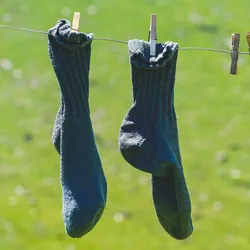
Level 1:
In Chilliwack, Canada, Rajnish and Harpreet had a big problem. A game called pickleball was causing too much noise near their home. The noise never stopped, and it made them very upset. The couple tried to tell the city, but nothing changed. So they got an idea from Gandhi, a peaceful protester from long ago. They decided to stop eating to make the city listen. But it didn’t work, and Rajnish got sick. The noise from the game made it hard to sleep and work. They hoped for a solution, but it seemed far away.
The pickleball game was next to their home in the park. Before, they were happy, but then the game came. It was like a drum always playing, even in the house. They got tired and felt bad all the time. They tried to ignore it, but it was too much. They asked the city to help, but the noise stayed. They wanted to be heard like Gandhi was. They stopped eating, but the city didn’t care. Rajnish got sicker, so they stopped the strike.
They asked, “Why won’t the city help us?” They wanted to sleep and work without noise. The city said they tried, but it didn’t change. The game should close soon, but it still felt far. They wished the noise could go away. They hoped the city could fix it. They wanted to live in peace again, like before the game. They learned that peaceful ways don’t always work. But they won’t give up and hope for a better day.
Level 2:
In Chilliwack, Canada, Rajnish and Harpreet faced a challenge. The nearby pickleball game caused constant noise near their home. The noise never stopped, making them upset. They tried to tell the city, but nothing changed. Inspired by Gandhi, a peaceful protester, they decided to stop eating to make the city listen. Unfortunately, it didn’t work, and Rajnish fell sick. The noise disrupted their sleep and work. They hoped for a solution, but it seemed distant.
Previously, they were happy until the game arrived in the park nearby. The continuous noise felt like a drum beating in their home. They felt tired and unwell. Although they tried to ignore it, it was too much. They wanted the city to help but got disappointed. The city claimed efforts, but the noise persisted. They yearned for peaceful living like before the game. They learned that peaceful ways may not always work, but they won’t give up hope for a better day.
Full Story:
Are you familiar with the game of pickleball? It’s a popular sport that combines elements of tennis, badminton, and ping pong, played with paddles and a plastic ball. While many people enjoy this fun and energetic game, it’s not always a source of joy for everyone. Meet Rajnish and Harpreet Dhawan, a Canadian couple living in Chilliwack, who have been struggling with the relentless noise from the nearby pickleball courts.
In the peaceful city of Chilliwack, where life was once undisturbed, the Dhawans found their tranquil home adjacent to the serene Portage Park in early 2017. The sounds of children playing or other sports in the park didn’t bother them; it was just a part of the suburban melody they had grown accustomed to. But little did they know that their peaceful existence would soon be shattered by the arrival of pickleball.
In the spring of 2019, the city decided to install pickleball courts just 30 feet away from the Dhawans’ abode. At first, they tried to brush off the noise, hoping they would eventually grow accustomed to it. But that was wishful thinking. Rajnish, an English professor, and Harpreet, a dental hygienist, found themselves increasingly affected by the incessant thumping of balls against paddles. Their nights became restless, and both struggled to keep up with their daily routines, leading to anxiety and frustration.
City officials were notified about the issue, and the couple patiently awaited a resolution. However, despite their complaints, the noise persisted day after day, hour after hour. The Dhawans decided it was time to take matters into their own hands and seek inspiration from a figure known for his nonviolent protests - Mohandas K. Gandhi.
Taking a page from Gandhi’s book, the Dhawans embarked on a hunger strike, hoping that their peaceful protest would make the city take notice and address their plight. After all, if Gandhi could use a hunger strike to bring about change in South Africa and India during colonial times, surely it could work in the post-colonial world as well.
But the path of protest was not easy for Rajnish and Harpreet. As they stood their ground, their physical and emotional well-being began to take a toll. Rajnish’s heart rate increased, and he started feeling unwell. After enduring around 50 hours of the hunger strike, he decided to put an end to it. Unlike Gandhi, who had millions of followers to support his cause, the Dhawans found themselves standing alone in their struggle.
One can’t help but wonder, why did it come to this? Shouldn’t a peaceful and loving community find ways to accommodate the needs and well-being of its residents? Is there no room for compromise and understanding? The Dhawans didn’t expect the courts to vanish overnight, but they hoped for some alleviation, like limiting the hours of play or implementing noise-reducing measures.
While the city claims to have taken action, their efforts appear to have fallen short of providing relief to the beleaguered couple. Players continue to ignore the supposed limitations on playing hours, exacerbating the situation. The promise of indoor courts in the future and the eventual closure of the nearby courts in November may sound like solutions, but for the Dhawans, it feels like an eternity away.
Imagine the constant pounding of a drum, the sound reverberating in every corner of your home - that’s how Rajnish describes the pickleball noise. It’s not just an annoyance; it’s a persistent intrusion into their private sanctuary. Falling asleep becomes an arduous task, and staying focused during the day becomes a distant dream.
As outsiders looking in, we must ask ourselves, what can be done to avoid such distressing situations? Is there a better way to plan and implement recreational facilities that do not disrupt the lives of nearby residents? Shouldn’t the well-being of a community be a priority in all decisions made by city officials?
Perhaps it’s time for communities to engage in open and transparent dialogue, involving all stakeholders in decision-making processes. Understanding the concerns of residents and finding common ground can go a long way in preventing such conflicts in the future. After all, harmony and empathy should be the foundation of any thriving community.
As the Dhawans continue to grapple with their pickleball predicament, their story serves as a reminder that the impact of our actions goes beyond the immediate moment. It is a wake-up call for communities everywhere to be more considerate, compassionate, and receptive to the needs of their fellow citizens.
So, let us reflect on the plight of Rajnish and Harpreet Dhawan, and ponder the profound lessons we can learn from their struggle. How can we be more like Gandhi in resolving conflicts, embracing empathy, and advocating for positive change? Let us strive for a world where the rhythm of life is harmonious, and the sound of joy does not drown out the peace of others.
Questions:
Question: How did the installation of pickleball courts affect Rajnish and Harpreet Dhawan’s life?
Answer: The installation of pickleball courts near their home caused constant noise, leading to sleep disturbances and difficulty keeping up with daily routines.
Question: What inspired the Dhawans to embark on a hunger strike?
Answer: The Dhawans were inspired by Mohandas K. Gandhi, who used hunger strikes as a form of peaceful protest, hoping it would make the city take notice of their situation.
Question: What actions did the city take in response to the Dhawans’ complaints about the pickleball noise?
Answer: The city claimed to have taken action, including limiting playing hours, but the noise persisted as players ignored the supposed restrictions.
Question: How did the pickleball noise impact Rajnish’s work and Harpreet’s well-being?
Answer: The relentless noise affected Rajnish’s work as an English professor, and both Rajnish and Harpreet experienced negative effects on their well-being, causing them to seek therapy.
Question: What lessons can communities learn from the Dhawans’ struggle with pickleball noise?
Answer: The article suggests that communities should engage in open and transparent dialogue, be considerate of residents’ needs, and find common ground to avoid distressing situations like the one faced by the Dhawans.
Fill in the Blanks:
empathy, adjacent, incessant, stakeholders, harmony, alleviation, serene, reverberating, advocating, compassionate, arduous, predicament, plight, relentless
Meet Rajnish and Harpreet Dhawan, a Canadian couple living in Chilliwack, who have been struggling with the ________ noise from the nearby pickleball courts.
In the peaceful city of Chilliwack, where life was once undisturbed, the Dhawans found their tranquil home ________ to the ________ Portage Park in early 2017.
Rajnish, an English professor, and Harpreet, a dental hygienist, found themselves increasingly affected by the ________ thumping of balls against paddles.
Taking a page from Gandhi’s book, the Dhawans embarked on a hunger strike, hoping that their peaceful protest would make the city take notice and address their ________.
The Dhawans didn’t expect the courts to vanish overnight, but they hoped for some ________, like limiting the hours of play or implementing noise-reducing measures.
Imagine the constant pounding of a drum, the sound ________ in every corner of your home - that’s how Rajnish describes the pickleball noise.
Falling asleep becomes an ________ task, and staying focused during the day becomes a distant dream.
Perhaps it’s time for communities to engage in open and transparent dialogue, involving all ________ in decision-making processes.
After all, ________ and ________ should be the foundation of any thriving community.
As the Dhawans continue to grapple with their pickleball ________, their story serves as a reminder that the impact of our actions goes beyond the immediate moment.
It is a wake-up call for communities everywhere to be more considerate, ________, and receptive to the needs of their fellow citizens.
How can we be more like Gandhi in resolving conflicts, embracing empathy, and ________ for positive change?
Vocabulary:
Relentless - (adjective) continuous and unyielding; never stopping or giving up.
Adjacent - (adjective) next to or adjoining something else.
Serene - (adjective) calm, peaceful, and undisturbed.
Incessant - (adjective) continuing without interruption; constant and unending.
Plight - (noun) a difficult or challenging situation, usually involving hardship or distress.
Alleviation - (noun) the act of making something less severe or reducing its intensity.
Revereberating - (verb) to be repeated or reflected repeatedly, as sound waves, causing echoes.
Arduous - (adjective) requiring a lot of effort, hard work, and persistence.
Stakeholders - (noun) individuals or groups who have an interest in and can be affected by the outcome of a particular situation or project.
Compassionate - (adjective) showing sympathy, understanding, and concern for the suffering or misfortune of others.
Predicament - (noun) a difficult, unpleasant, or embarrassing situation with no easy solution.
Advocating - (verb) publicly supporting or recommending a particular cause or policy.
Embrace - (verb) to accept or support something willingly and enthusiastically.
Harmony - (noun) a state of peaceful coexistence, agreement, and cooperation.
Empathy - (noun) the ability to understand and share the feelings, thoughts, and emotions of others.
I hope these definitions help clarify the meaning of the words used in the article! Let me know if you need further assistance.




